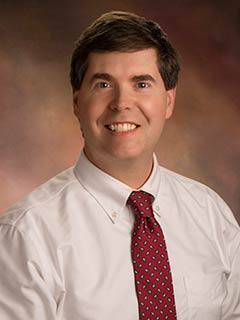HOW CAN WE HELP YOU? Call 1-800-TRY-CHOP
In This Section

Dr. Berger's research focus involves the development of pediatric heart failure and underlying metabolic drivers. He studies how improving metabolic dysregulation may also benefit cardiac dysfunction.
Bio
Dr. Berger is an attending physician in the Division of Cardiology on the Pediatric Heart Failure and Transplantation service. His research and clinical interests focus on the development of pediatric heart failure and underlying metabolic causes.
Dr. Berger studies how metabolic dysregulation drives cardiac dysfunction. He investigates cardiomyocyte lipid homeostasis relevant to heart failure with an emphasis on obesity-driven diastolic heart failure, a common entity in many forms of pediatric heart failure. This work combined basic science models with translational approaches, and has been supported by multiple intramural and National Institutes of Health grants.
In addition, Dr. Berger has published on genetic causes of pediatric cardiomyopathy, risk factors for dyslipidemia in congenital heart disease, and appropriate lipid screening in these populations.
Education and Training
AB, Bowdoin College (Biochemistry), 2005
MD, Albert Einstein College of Medicine, 2014
PhD, Albert Einstein College of Medicine (Biochemistry), 2014
Internship, Children's Hospital of Philadelphia (Pediatrics), 2014-2015
Residency, Children's Hospital of Philadelphia (Pediatrics), 2015-2017
Fellowship, Children's Hospital of Philadelphia (Pediatric Cardiology), 2017-2020
Postdoctoral Research Fellowship, Lab of Daniel Kelly, MD, Cardiovascular Institute, Perelman School of Medicine, University of Pennsylvania, 2019-2022
Advanced Fellowship, Children’s Hospital of Philadelphia (Pediatric Heart Failure, Cardiomyopathy and Transplantation), 2020-2022
Titles and Academic Titles
Attending Physician
Instructor in Pediatrics
Professional Memberships
American Academy of Pediatrics, 2014-
American Heart Association, Council on Cardiovascular Disease in the Young, 2019-
Advanced Cardiac Therapies Improving Outcomes Network, 2020-
International Society for Heart and Lung Transplantation, 2022-
Professional Awards
International Society for Heart and Lung Transplantation Annual Meeting Travel Award, 2022
CHOP Department of Pediatrics Fellow Research Lectureship, 2021
CHOP Cardiac Center Research Award, 2019
Edward Weinstein Award for Outstanding Scholarship and Human Commitment, Albert Einstein College of Medicine, 2014
Dean’s Recognition Award, Albert Einstein College of Medicine, 2013
Howard Hughes Medical Institute Research Fellow, Bowdoin College, 2004